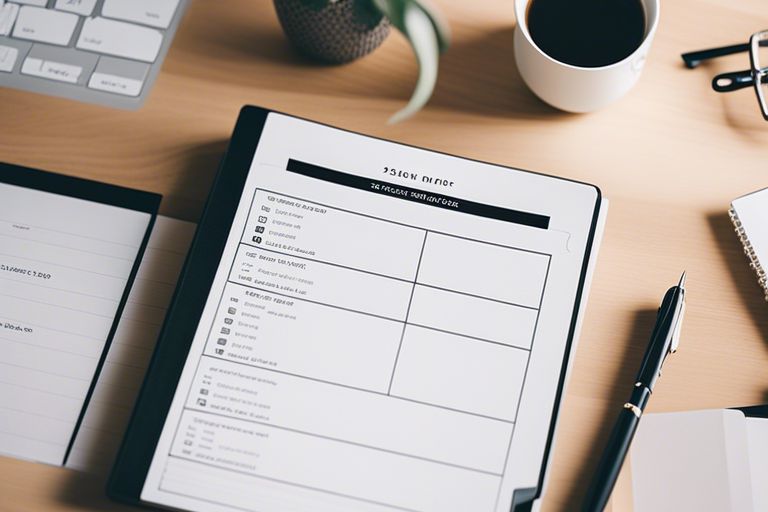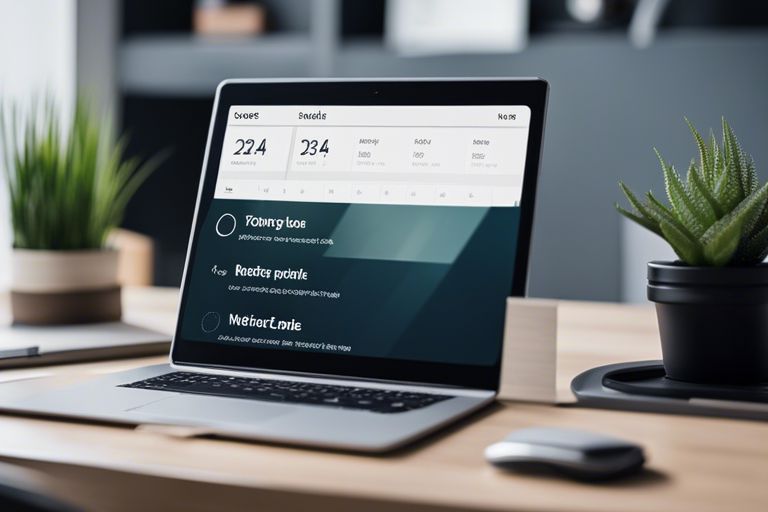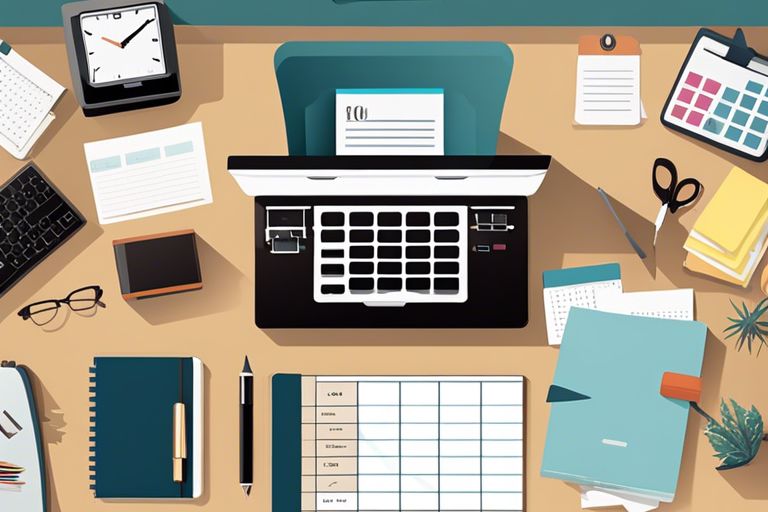Have you ever considered that developing good habits is not just a matter of luck or genetics, but is actually a skill that can be honed and perfected over time? The good news is, with the right mindset and strategies, you can train yourself to develop good habits that will have a positive impact on your life. In this blog post, we will explore the science behind habit formation and provide you with practical tips and techniques to help you develop and maintain healthy, positive habits that will contribute to your overall well-being and success.
The Psychology of Habit Formation
Before delving into the ways in which you can train yourself to develop good habits, it’s important to understand the psychology behind habit formation. Habits are automatic behaviors that are triggered by specific cues and reinforced by rewards. They are formed through a process called “habit loop,” where a cue triggers a routine which is then followed by a reward.
Understanding How Habits Work
Habits work through a process called “habit loop,” which consists of three components: the cue, the routine, and the reward. The cue is the trigger that sets off the habit, the routine is the behavior itself, and the reward is the positive reinforcement that strengthens the habit. Understanding this process is crucial in developing good habits, as it allows you to identify the cues that trigger your unwanted behaviors and replace them with healthier alternatives.
The Role of the Brain in Habit Development
The development of habits is closely linked to the brain’s reward system. When you engage in a behavior that results in a reward, such as the release of dopamine, a feel-good neurotransmitter, your brain forms a connection between the cue and the reward, making it more likely that you will repeat the behavior in the future. This is why breaking bad habits can be so challenging – your brain has become wired to seek out the rewards associated with those habits. However, by understanding the role of the brain in habit development, you can begin to rewire your brain to form new, healthier habits that will ultimately lead to positive rewards.
By understanding the psychology behind habit formation, you can begin to gain insight into the mechanisms that drive your behaviors. This knowledge can empower you to take control of your habits and develop new, positive ones that align with your goals and values. Remember, the power to change your habits lies within your ability to understand and manipulate the cues, routines, and rewards that shape them.
Strategies for Developing Good Habits
If you want to train yourself to develop good habits, it’s essential to have a clear plan and effective strategies in place. Here are some key strategies to help you develop good habits that stick.
Setting Clear and Achievable Goals
When it comes to developing good habits, setting clear and achievable goals is essential. The goals you set should be specific, measurable, and attainable. Avoid setting vague goals like “I want to exercise more” and instead be specific, such as “I will go for a 30-minute walk every morning.” By setting clear and achievable goals, you give yourself something concrete to work towards, which can help keep you accountable and motivated. Additionally, breaking down larger goals into smaller, achievable milestones can help you track your progress and celebrate your successes along the way.
The Power of Consistency and Routine
Consistency and routine are key components of developing good habits. When you repeat a behavior consistently, you are reinforcing it and making it more likely to become a habit. Establishing a routine can also help make good habits more automatic, reducing the need for willpower and decision-making. By incorporating your desired habits into your daily or weekly routine, you make it easier for yourself to stick to them. Whether it’s setting a specific time each day for a habit or linking it to an existing routine, consistency and routine can help solidify your good habits.
Overcoming Common Challenges
After learning about the science of building habits, you may encounter some common challenges that prevent you from successfully developing good habits. However, by understanding these challenges and learning how to overcome them, you can continue on your path towards creating positive changes in your life. One valuable resource to consult is the article by CNN, titled How to build a habit in 5 steps, according to science. This resource provides practical steps you can take to build new habits based on scientific research.
Dealing with Procrastination and Lack of Motivation
When you are trying to develop good habits, dealing with procrastination and lack of motivation can be challenging. It’s normal to feel unmotivated at times, but it’s important to remember that building new habits is a process that takes time and effort. To combat procrastination, create a specific plan for when and how you will work on your habit each day. Additionally, find ways to stay motivated, such as tracking your progress and rewarding yourself for small successes. By acknowledging these challenges and finding ways to overcome them, you can continue to make progress towards your goals.
Identifying and Changing Negative Habit Loops
Identifying and changing negative habit loops is crucial for developing good habits. It’s essential to recognize the patterns and triggers that lead to negative habits and find ways to disrupt them. One effective strategy is to replace a negative habit with a positive one. For example, if you tend to reach for unhealthy snacks when you’re stressed, try practicing deep breathing or going for a walk instead. By consciously making an effort to change your behavior, you can break the cycle of negative habit loops and set yourself up for success.
By acknowledging these common challenges and implementing effective strategies to overcome them, you can train yourself to develop good habits and create positive changes in your life. Remember, progress may not always be linear, but with dedication and persistence, you can cultivate lasting habits that contribute to your overall well-being. Stay focused on your goals and remain adaptable as you navigate the process of habit formation.

Measuring Progress and Maintaining Good Habits
Now that you have committed to developing good habits, measuring your progress and maintaining those habits is vital to your success. Consistency is key, and tracking your habits will help you stay on course and continue to improve. Additionally, being adaptable to life changes and staying flexible will ensure that you can overcome any obstacles that may come your way.
Tracking Your Habits for Success
Tracking your habits is an essential part of maintaining good habits. Whether it’s using a journal, an app, or a calendar, keeping track of your daily progress will help you identify patterns and areas for improvement. By regularly assessing your habits, you can make necessary adjustments and stay accountable to your goals. This will help you stay focused and motivated to continue on your path to success.
Adapting to Life Changes and Staying Flexible
Life is full of unexpected changes, and it’s important to be able to adapt and stay flexible when it comes to maintaining good habits. You may encounter challenges or setbacks along the way, but it’s crucial to remain resilient and adjust your habits accordingly. Embracing change and being open to new strategies will help you continue to make progress and overcome any obstacles that may arise. Remember, staying flexible is a key component in maintaining good habits over the long term.
Can You Train Yourself to Develop Good Habits?
Conclusively, yes, you can train yourself to develop good habits. By setting clear goals, creating a plan, and consistently practicing the desired behavior, you can rewire your brain and establish new, positive habits. It may take time, effort, and dedication, but with the right mindset and strategies, you have the power to cultivate habits that will benefit your personal and professional life. Remember, it’s all about shifting your mindset and making small, consistent changes to achieve your desired outcomes. So, take control of your habits, and start creating the positive changes you want to see in your life.








